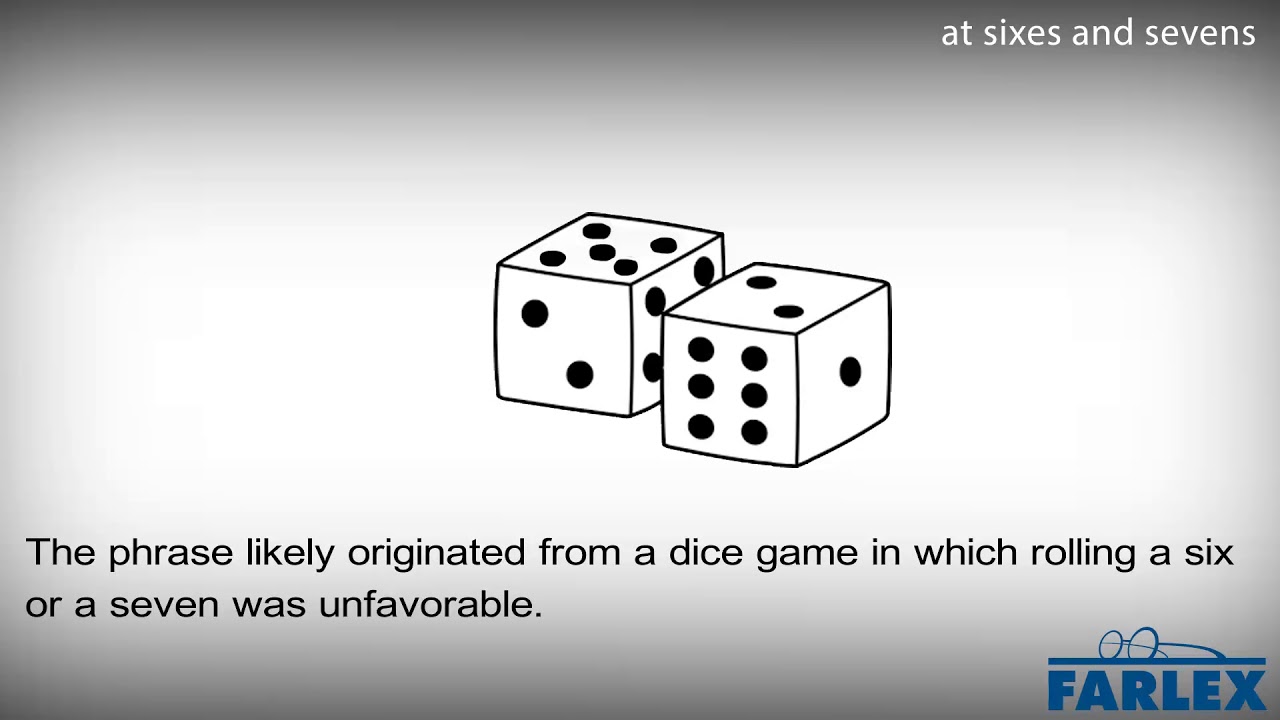第345期:英文乱七八糟怎么说?
今天我们来学一下“乱七八糟”用英语怎么说。其实汉语乱七八糟这个成语的来源大多数人也说不清。
先说汉语“乱七八糟”的来源吧。流传最广的说法是乱七八糟这个成语原来指的是西汉时期的七王之乱和西晋时期的八王之乱。佛老不太接受这个解释,因为如果这样说的话,七嘴八舌、七上八下又该怎么解释呢?很多成语的源头已经找不到了。这就是词源学的研究意义。
英语中也有一个成语构词法跟“乱七八糟”很相似,叫at sixes and sevens. 也选用了两个数字,只不过是6和7,不是七和八。

先看几个例句,然后我们再简单讲一下这个英语成语怎么来的。
BBC英语学习频道官网是这样解释的:
这个带有英文数字的说法 at sixes and sevens 源自一种古老而复杂的掷骰游戏,用来形容一个人的处境、状态一片混乱或环境凌乱不堪、乱七八糟。
I’ve just moved into a new office and it’s still at sixes and sevens. 我刚搬进新办公室,一切还都乱七八糟呢。

柯林斯字典的英语释义是:
If you say that someone or something is at sixes and sevens, you mean that they are confused or disorganized.
例句:
The government is at sixes and sevens over the issue of domestic security.政府在国内治安问题上管理得相当混乱。
关于at sixes and sevens这个成语的来源,个大英语网站的说法也不统一,佛老比较接受下面这种说法:
The phrase was originally ‘to set on six and
seven’ and is thought to have derived in the 14th century from the game
of dice. The meaning then was ‘to carelessly risk one’s entire fortune’.
The earliest citation in print is Chaucer’s Troilus and Criseyde, 1374:
“Lat nat this wrechched wo thyn herte gnawe, But manly set the world on sexe and seuene.”
这句话大家可能看着有点怪,这的确是英语,而且是英国文学鼻祖乔叟写的。古英语就这样子。
除了形容事物,at sixes and sevens还可以形容人“懵了”的状态。
If you are at sixes and sevens you are in a state of total confusion, disorder or disarray.
例如:
You might say “When it happened, I didn’t know what to say. I was at sixes and sevens for a moment”. 事情发生时,我不知该说什么,我当时完全蒙圈了。(蒙圈是东北方言,意思是蒙了,傻了,呆住了)
简单说,at sixes and sevens大概原来是法语,源自14世纪的一种骰子游戏。可能最早的形式是‘cinque and six’,在法语中意思是“5和6”.经过后来的语言变迁,已经看不出原形是什么了。
作为普通学习者,我们知道这个成语的意思,会使用就可以了。需要注意的是,at sixes and sevens主要是英国英语的说法,在美国英语中没那么常见。
有兴趣对这个问题继续深入研究的读者可以自行参考一个网站上对at sixes and sevens的词源解释:
http://www.worldwidewords.org/qa/qa-six1.htm





